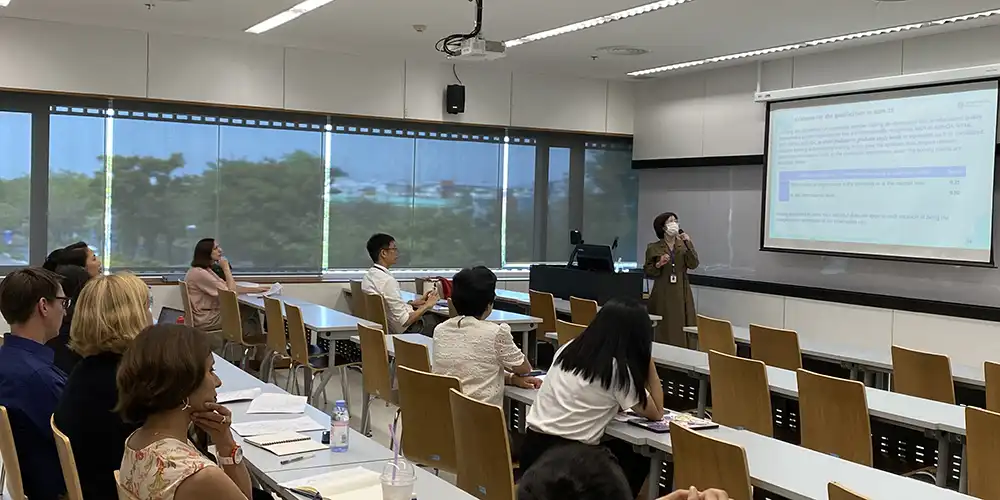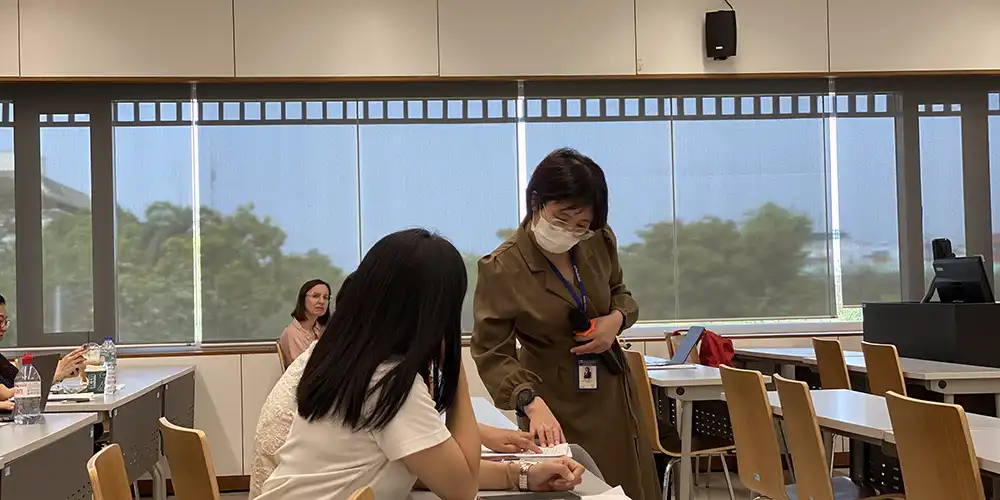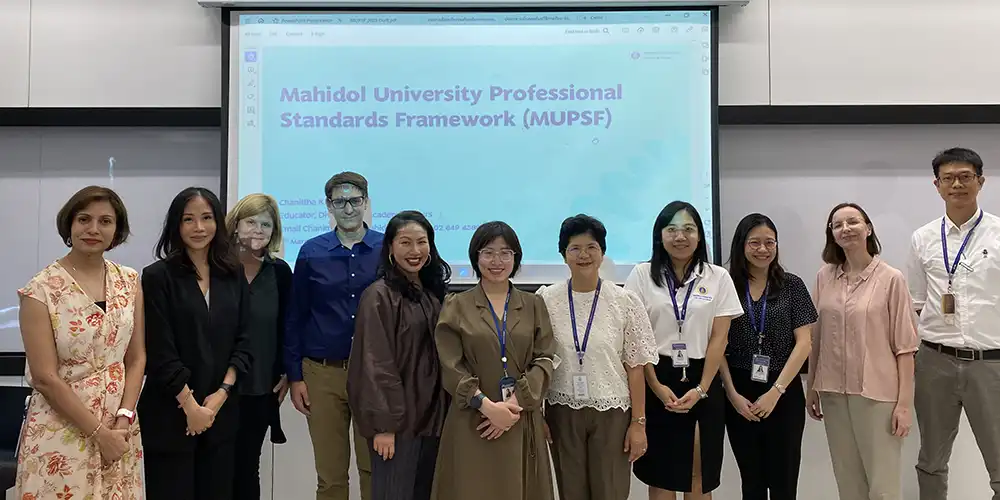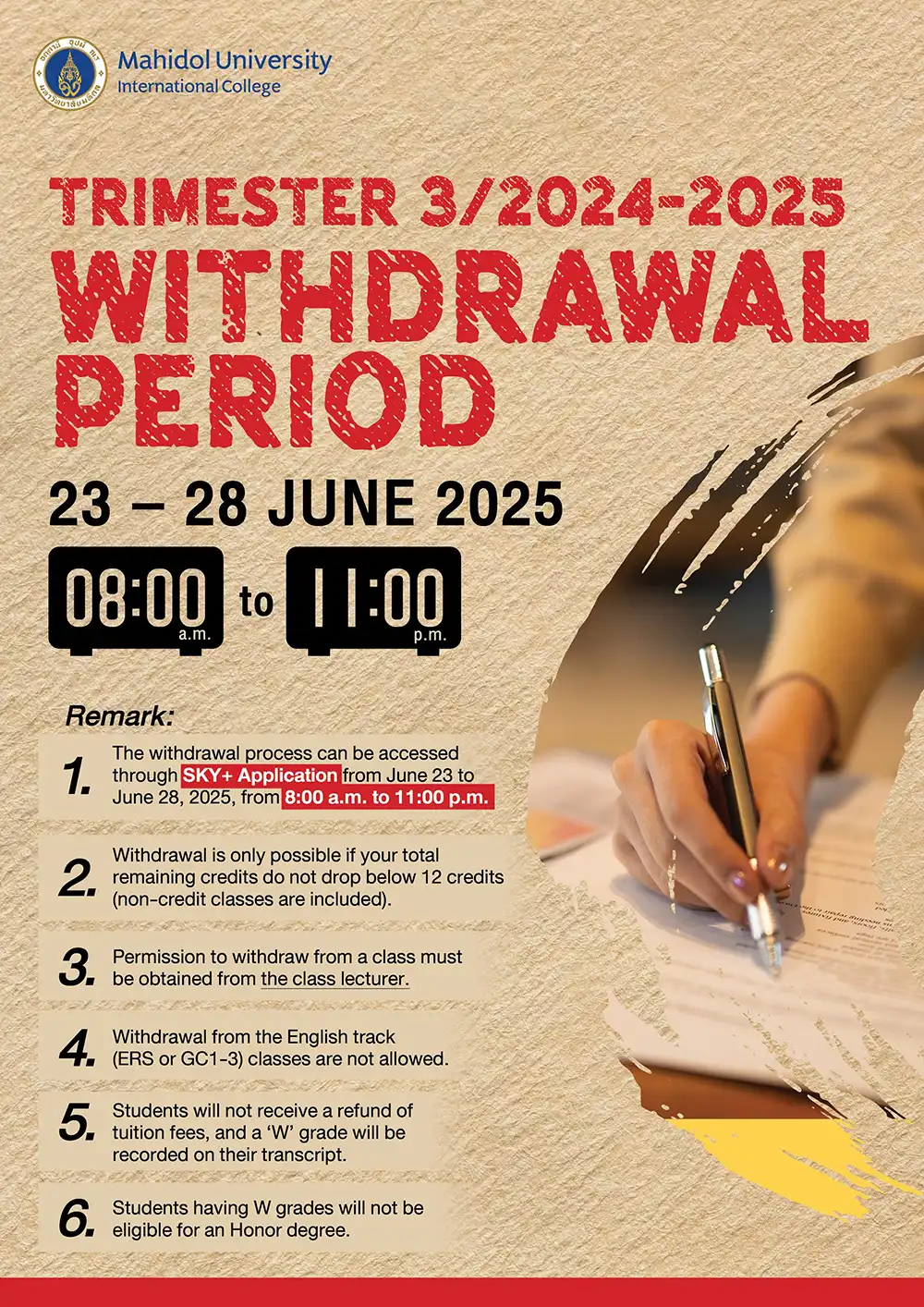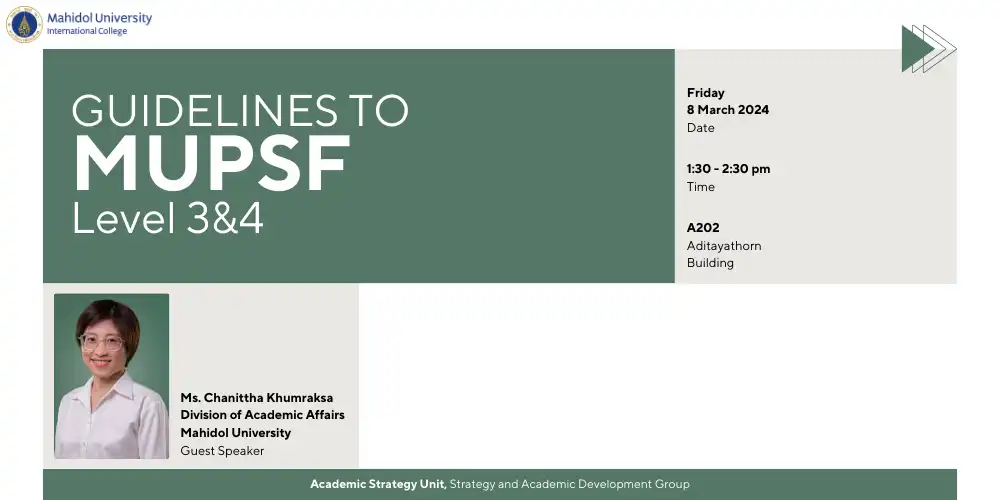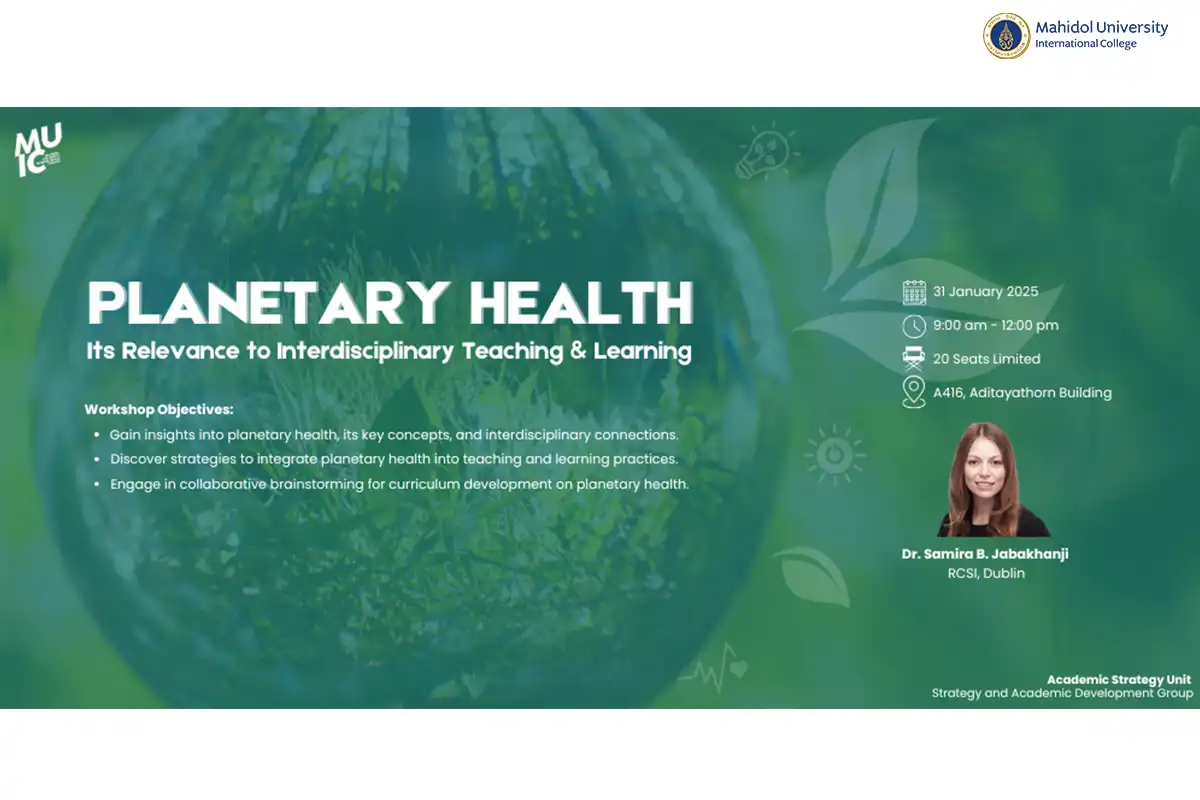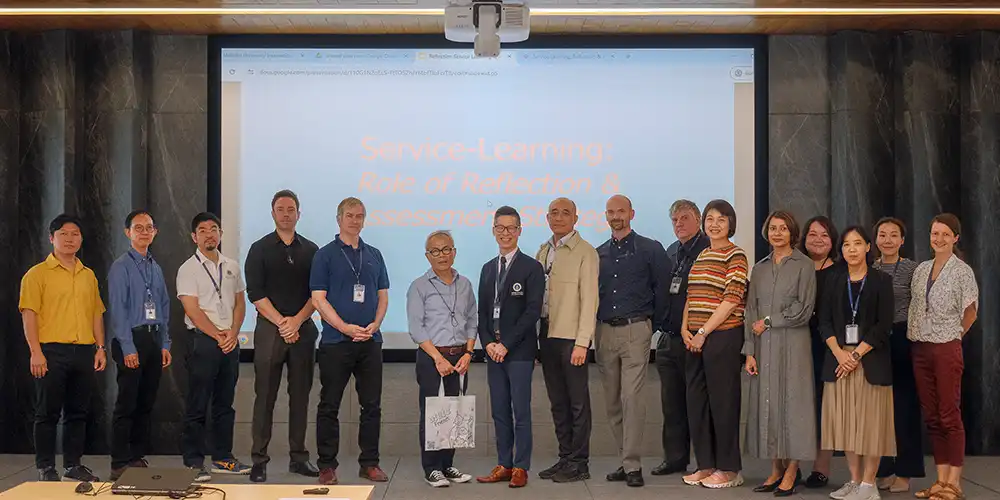Guidelines to MUPSF Level 3 & 4
April 25, 2024 2024-04-25 2:34Guidelines to MUPSF Level 3 & 4
Title: Guidelines to MUPSF Level 3 & 4
Date & Time: Friday, 8 March 2024 from 1:30 – 2:30 pm
Venue: A202, Aditayathorn Building
Conductors: Ms. Chanittha Khumraksa (Division of Academic Affairs, Mahidol University)
The Strategy and Academic Development Group hosted a workshop titled “Guidelines to MUPSF Level 3 & 4”. Led by Ms. Chanittha Khumraksa from the Division of Academic Affairs, Mahidol University, the workshop outlined the essential requirements for aspiring teachers at MUIC to qualify for Levels 3 and 4 of the Mahidol University Professional Standards Framework (MUPSF).
The core of the assessment hinges on evidence submitted by the applicant across three key areas: Contributions to Education (Item 29), Coaching/Mentoring (Item 30), and Significant Roles in Education (Item 31). Item 29 has a minimum score of 1, with applicants showcasing their contributions through various means, including publishing research, authoring educational materials, implementing innovative practices, and/or participating in quality assurance initiatives. The scoring system prioritizes the highest-achieving work within each category, but there’s also room for other contributions, subject to approval.
Item 30 focuses on the applicant’s ability to guide and support other instructors requiring evidence demonstrating a positive impact on the mentor’s teaching methods. Finally, Item 31 delves into the applicant’s broader contributions to the educational landscape. Holding significant roles in influencing the development of education, and/or teaching at a national or international level. The application process requires support from referees who can vouch for the applicant’s qualifications. The number of referees varies by level, with Level 4 demanding a more extensive network of endorsements. The university provides flexibility for applications, offering valuable feedback and allowing for the submission of additional evidence to strengthen the application.
For applicants who receive a negative assessment after submitting further evidence, there’s an appeal process in place. This involves presenting a formal request for review with additional supporting materials within a specific timeframe. The original assessment committee will then re-evaluate the application based on the new information. Should the appeal be unsuccessful, the applicant’s department can request a full reassessment. It’s important to note that previously rejected work can only be resubmitted with significant revision. By understanding these requirements and actively gathering the necessary evidence, relevant personnel can effectively navigate the MUPSF Levels 3 & 4 qualification process, solidifying their position as valuable contributors to the field of education.
